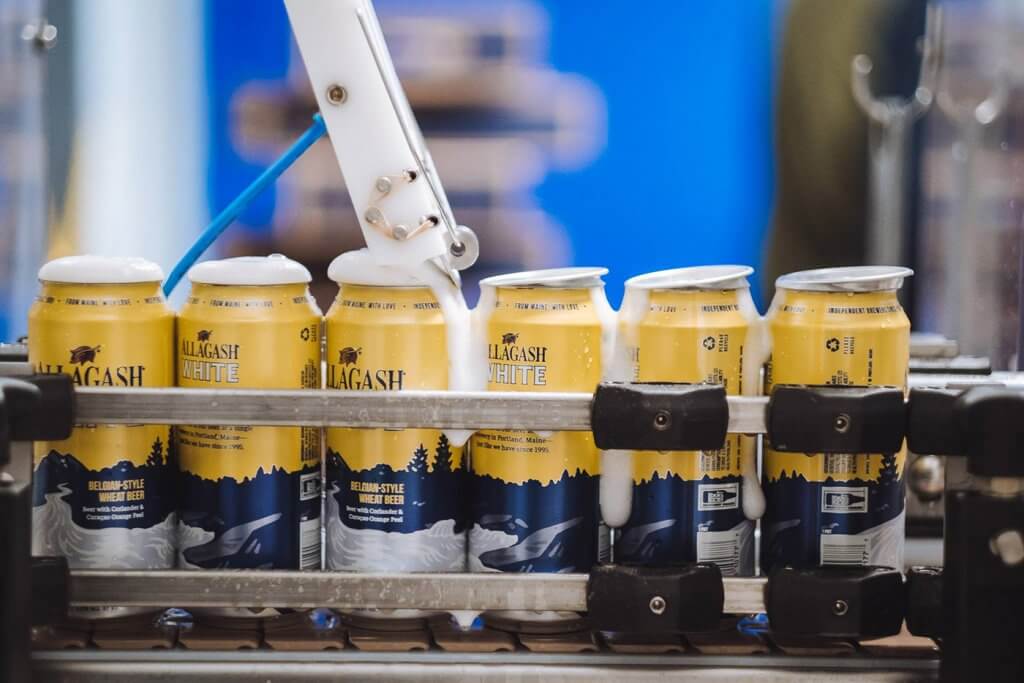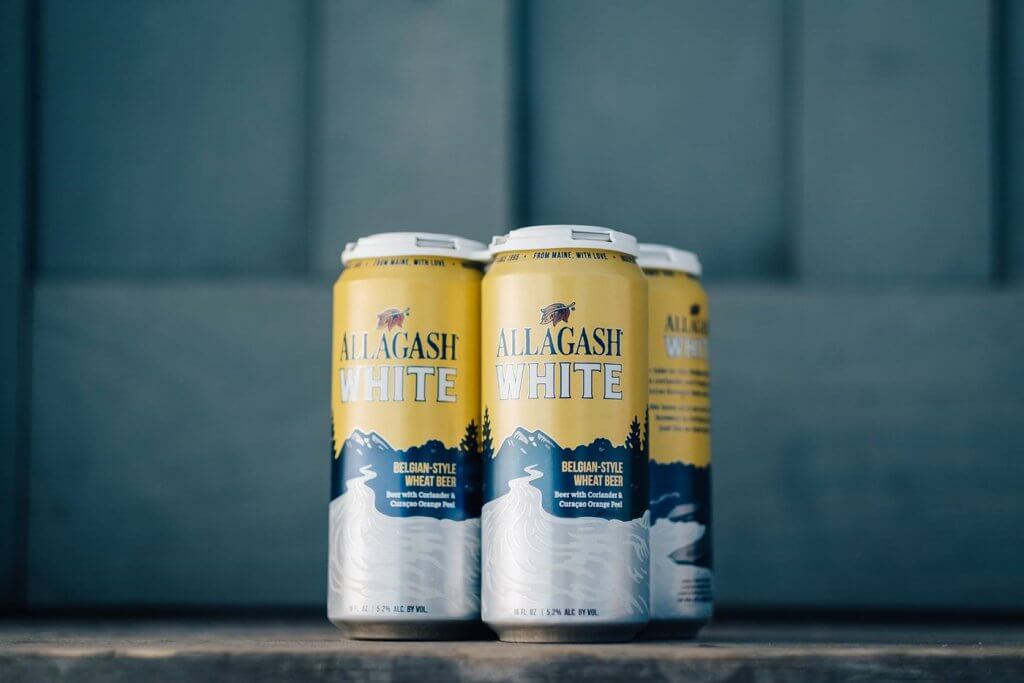
Since launching in 1995, Allagash Brewing Company has carved out a highly successful and respected place in the craft beer landscape. Its Belgian-style beers and obsession with stellar quality has helped make Allagash the 30th largest craft brewer in the United States, and the brewery’s focus on witbier has made founder Rob Tod the American equivalent of Pierre Celis. This brewery has now begun a significant new chapter in its acclaimed history by releasing its legendary Allagash White in cans. That beer and other Allagash creations are now being canned on an Automatic Canning System V5 from Cask.
That the revered and “quality first” brewery -- which has six full-time staffers in its lab department -- chose our canning system for its foray into cans is a career highlight for us here at Cask. In a recent podcast interview with Brewbound, Allagash founder Rob Tod noted that the adoption of our equipment and the mighty aluminum can is a big deal for his brewery, too: “I think it’s going to be transformative,” he said.
Allagash brewmaster Jason Perkins oversaw the addition of cans to the brewery lineup, and he says the choice of Cask’s canning system for the brewery’s uncanny move was easy to make. “We needed high-quality canning in a small physical footprint,” Perkins says. “When we evaluated our options, the Cask system fit our needs.”
What prompted the embracing of cans? “We’ve always been open to canning, but had prioritized bottles and draft.” Perkins says. “Once we did consider cans, we were initially skeptical that we had the space or ability to supply our whole distribution with cans. The shift happened when we decided that we didn’t need to cover our entire distribution, at least not from the start, and we realized we had the room for a canning line.”
Allagash brewmaster Jason Perkins oversaw the addition of cans to the brewery lineup, and he says the choice of Cask’s canning system for the brewery’s uncanny move was easy to make. “We needed high-quality canning in a small physical footprint,” Perkins says. “When we evaluated our options, the Cask system fit our needs.
Allagash’s first canned beers included limited-release offerings The Stranger and the Crane (a dark saison brewed with cranberries) and Starling Wit, a Belgian-style witbier brewed with ginger. In early February the brewery released Allagash White and River Trip (a new and year-round Belgianesque table beer) to retailers in the Northeast. (ME, NH, VT, MA, CT, RI, NJ, and western and upstate New York.)
In a move that echoes Allagash’s history of combining Belgian brewing traditions with good ol’ Yankee ingenuity, Allagash is can conditioning its flagship beer. “After test runs and some extensive work in our lab,” Perkins says, “we found that beers like Allagash White and River Trip re-ferment nicely inside the can.”
Perkins says the two limited-release beers went into cans because their small-batch size wouldn’t have been feasible on the Allagash bottling line. He says one reason the small-batch and year-round beers went into cans is a reason cited by so many can adopters: “The canning line lets our customers enjoy our beer in places that bottles can’t go.”
That portability has played a big role in the steady rise of canned craft beer around the globe. Rob Tod thinks the popularity of cans can also be attributed to a previously unimaginable trend prior to Cask launching the canned craft beer trend. “People now associate cans with craft brewers and independently owned breweries,” he told Brewbound. “I think that community beer feel, that independent-beer feel, has a real appeal to customers. And I think that’s been a huge component in driving the popularity of cans, for sure.”
In a move that echoes Allagash’s history of combining Belgian brewing traditions with good ol’ Yankee ingenuity, Allagash is can conditioning its flagship beer. “After test runs and some extensive work in our lab,” Perkins says, “we found that beers like Allagash White and River Trip re-ferment nicely inside the can.”
In its extensive research of canning and test driving of its ACS V5, Allagash also saw firsthand the extremely low levels of dissolved oxygen pickup that can be achieved with Cask systems. Like many craft brewers who’ve added aluminum to their packaged lineup over the past 17 years, Perkins and his team are enjoying other unexpected pleasures from putting their liquid art into cans.
“After enjoying Allagash White in a bottle or on draft for about the past 24 years,” he notes, “we have to say it’s pretty awesome to get a new experience with a beer we know so well. We’re also excited to try White in new situations since cans are able to go places bottles can’t: on a boat, in our backpack for a hike, or on the beach, to name a few. That being said,” he adds, “we’re also looking forward to just enjoying a can or two of Allagash White in the comfort of our own home.”


